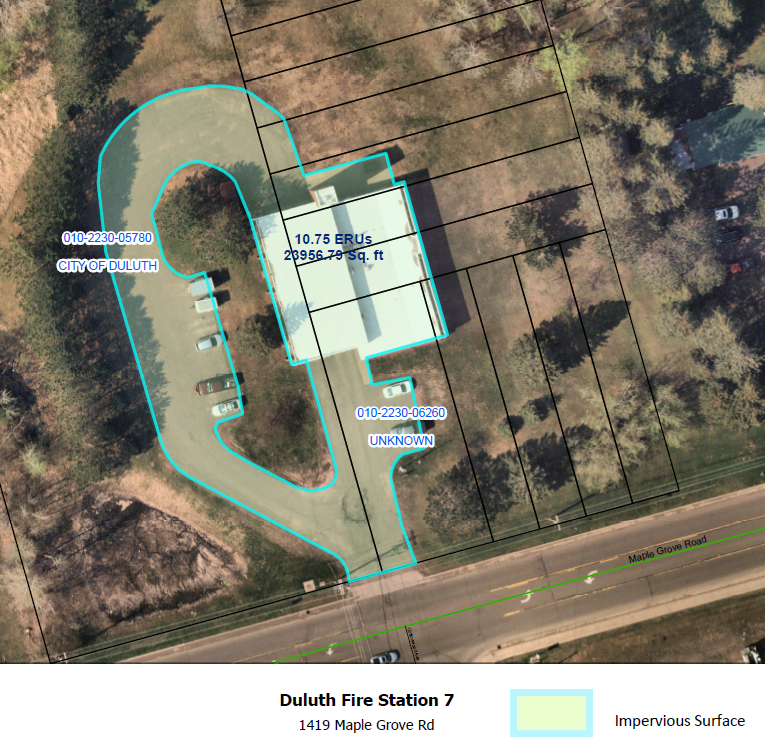Storm Utility Billing
The City of Duluth Stormwater Utility fee was developed and established in 1998, as a method to provide dedicated funding to the City’s stormwater system.
Everyone who owns developed property in Duluth pays for this service. Only public right-of-way’s, airport runways and taxiways are exempt from utility fees. The storm fee appears on your monthly Comfort System’s utility bill.
Your monthly stormwater utility fee helps pay for Duluth’s stormwater management system. The stormwater management system does the following:
|
|
|
|
|
| Residential |
| Single-Family Dwellings |
| Two-Family Dwellings |
| Townhouses |
| Manufactured Dwellings |
| Condominiums |
| Apartment Buildings |
| Senior Housing |
| Assisted Living |
| Cabins |
| Long Term Rentals |
| 1 - 3 Unit Short Term Rentals |
*Property that has a mixture of residential and nonresidential uses are considered nonresidential.*
Residential properties are billed based on the number of Equivalent Residential Units (ERU)s on a property. One ERU equals 2,228 square feet of impervious surface. 2,228 square feet is the average impervious surface area in Duluth for a residential dwelling unit. All residential buildings are billed 1 ERU per living unit/dwelling unit. You can find the current utility rates on the Comfort Systems website here.
| Nonresidential (Examples) |
| Theatres | Detox Centers |
| Dining & Drinking | Jails, Prisons |
| Auditorium, Gyms, Museums | Daycare Facilities |
| Arenas, Stadiums | Retail |
| Offices | Hotels, Motels |
| Educational Institutes | 4+ Unit Short Term Rentals |
| Clinics, Hospitals | Storage |
| Nursing Homes, Memory Care | Parking Garages, Ramps |
| Automobile Services | Cemeteries |
| Industrial Uses | Mixed Uses |
| Uses not classified as residential |
Nonresidential (commercial/industrial) properties are billed based on the total square footage of impervious surface on the property. Impervious surfaces include, without limitation, roads, parking lots, rooftops, buildings or structures, sidewalks, driveways, and other surfaces which prevent or impede the natural infiltration of stormwater runoff which existed prior to development.
The total impervious square footage of a nonresidential property is then converted to ERUs by dividing the total impervious square footage by 2,228 square feet. 2,228 square feet is the average impervious surface area in Duluth for a residential dwelling unit. For example, Duluth Fire Station 7 has a total impervious surface of 23,956.79 square feet. 23,956.79 sq. feet/2,228 sq. feet per ERU = 10.75 ERUs. Each ERU is billed at $9.29. You can find the current utility rates on the Comfort Systems website here.

Nonresidential property may be eligible for a utility fee adjustment, for more information please visit the Nonresidential Storm Utility Credit Webpage.
